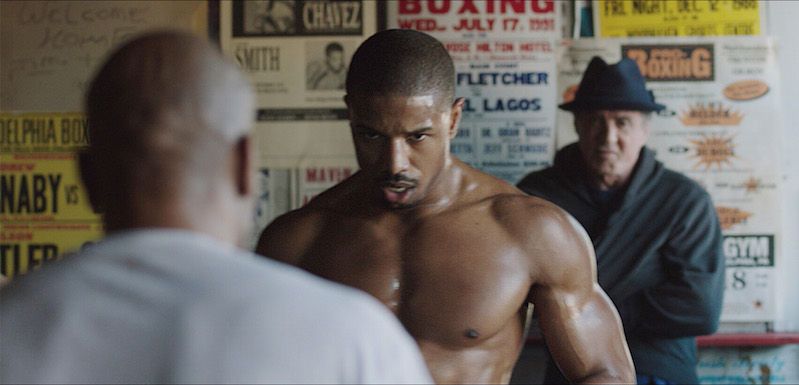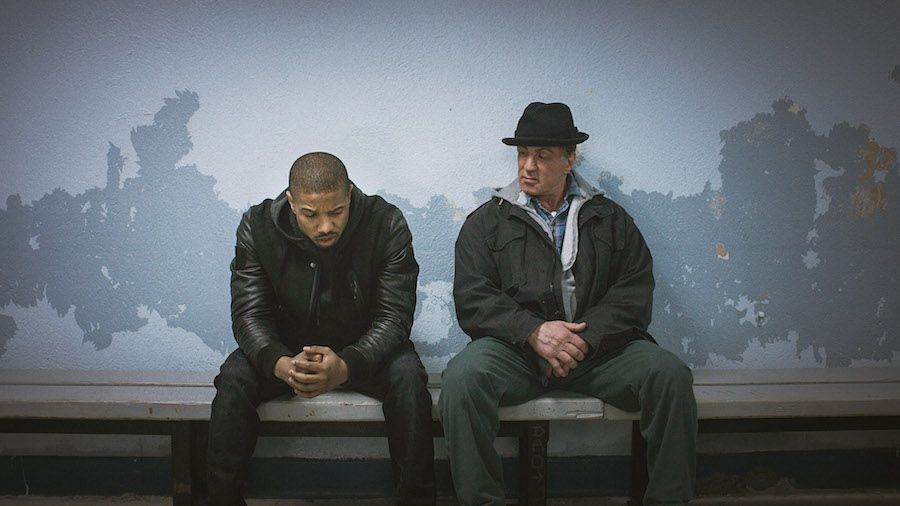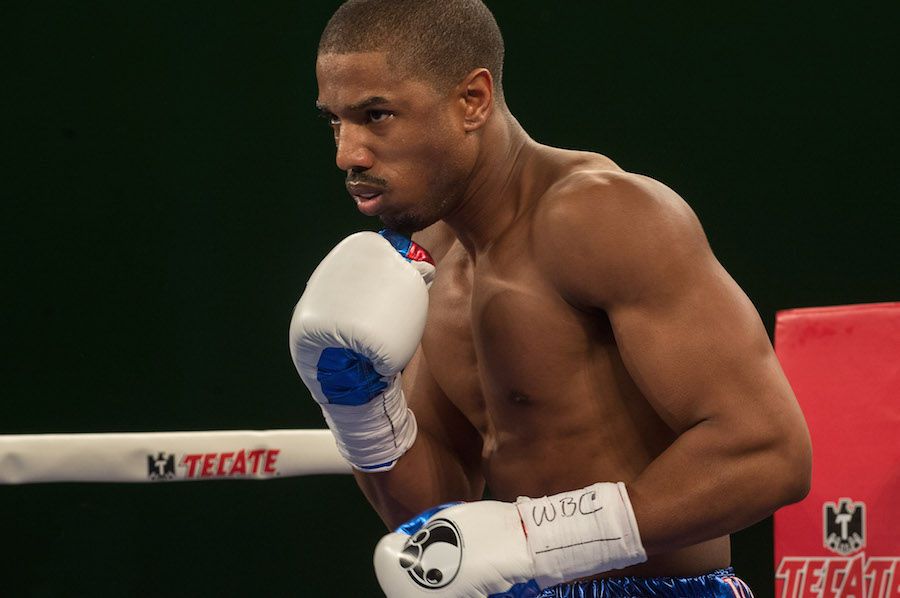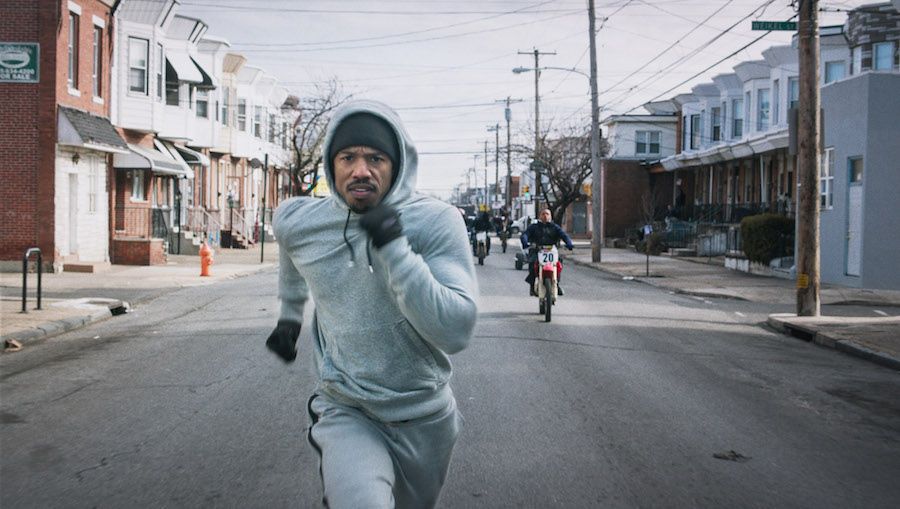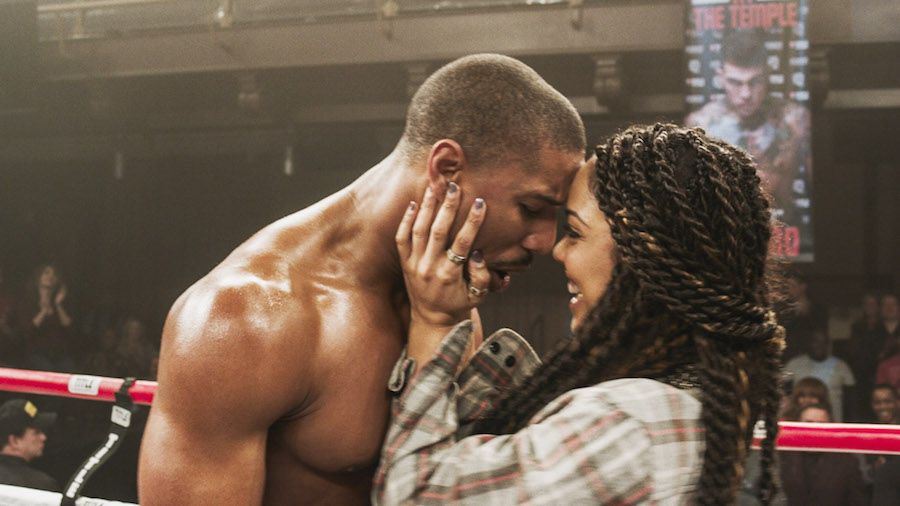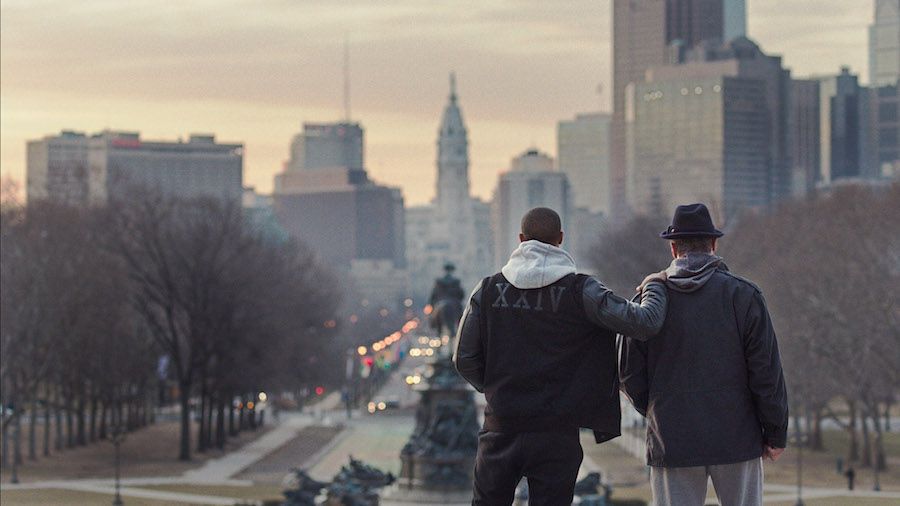The name on the title card may have changed, but the Rocky legacy is alive and thriving in Creed.
Creed starts out on the peripheral of the Rocky saga, where we discover that the late Apollo Creed had an illegitimate son, Adonis, a troubled boy already lost in the system, fighting his way through life. Upon learning of her late husband's secret son, Apollo's widow, Mary Anne (Phylicia Rashad), tracks the boy down and springs him from lockup, offering him a comfortable life in the shadow of his father's legacy and wealth.
However, the further he grows into manhood, the more Adonis (Michael B. Jordan) yearns to escape his father's shadow and earn his own place as a fighter. To show his commitment, Adonis leaves wealth, prosperity, support and his family name, behind, moving to the mean streets of Philadelphia to locate the one man who can help him: his father's former rival and longtime friend, Rocky Balboa (Sylvester Stallone). Though Rocky recognizes the passion in Adonis' eyes, the Italian Stallion is no longer the man he once was; failing health, very few friends left above ground, the aging Balboa has all but accepted that his time is over. But Adonis is relentless, and when sharks of the boxing world begin to circle the Creed name, looking to take a bite, Rocky decides he owes it to his late friend to repay a favor, and train his son for greatness.
Like its protagonist, Creed is an unlikely underdog that both recaptures the inspiring sports drama of the original Rocky, while also adding a level of cinematic artistry that is arguably better than anything the franchise has seen to date. It's another sure-fire hit for the director/star team of Ryan Coogler and Michael B. Jordan (they previously teamed for Fruitvale Station); a legitimate kick-start to the Rocky (or rather the Creed) franchise; and it's definitely the best performance we've seen from Stallone in years.
On the directorial front, Coogler shoots Creed in a similar style as Fruitvale Station. There's a lot of French New Wave style hand-cam shots in tight framing - an "over the shoulder" effect that gives the film a rough kinetic edge, with an added layer of crispy grit provided by cinematographer Maryse Alberti, who is on familiar ground after making gritty arthouse success out of The Wrestler.
That same kinetic, in-your-face style carries over to the scenes of sports action; the boxing sequences in Creed are explosive and exciting, with the boxing physicality deftly choreographed between performers and camera operators to preserve that over-the-shoulder intimacy. Coogler also throws much personal flare into the obligatory sequences of sports training and combat, with some nice slow-motion moments, gorgeous inner city tracking shots, or whirlwind angle reversals between fighters in the ring that play with both sides of POV to really flesh out the boxing experience in three-dimensions.
However, in both the onscreen visuals and the screenplay by Coogler and newcomer Aaron Covington, there is a slight dichotomy between obligation to the increasingly kitschy tropes of the Rocky movies, and the fresh, deeply themed coming-of-age tale Coogler has crafted around Adonis. From the opening scene of the film to the close, there are small hints that - separated from the Rocky legacy - there is actually a more powerful, socially conscious and resonant sports drama film at the core of Creed. However, even in bending itself to fit as an entry in the Rocky canon, Creed is still a high-quality piece of genre entertainment, and lives up to the crowd-pleasing legacy of (most of) its predecessors.
Even better is the sense of authenticity in the script, which captures a modern urban edge and a lot of idiosyncratic moments that scream truth of experience over "truth" of cinematic construction. Creed also subtly plants a flag for the Millennial generation - seen especially through the romantic subplot between Adonis and "Trip hop" singer Bianca (Tessa Thompson), which nails the attitudes and views of Millennials without making that examination a major distraction. In fact, it is only the presence of Rocky that shines a light on how different (and not so different, ultimately) this new generation is when it comes to the American underdog myth - but that juxtaposition is done wonderfully, so that Coogler honors the past that shaped him, while still not being afraid to offer his own voice on the subject.
Performance-wise, Creed is held together by a tight central trio that work together as a great ensemble. Michael B. Jordan (The Wire, Fruitvale Station) continues to prove himself as a highly capable leading man (we'll forget Fantastic Four). Jordan uses his proven acting ability to give Adonis plenty of outward fire, but also a deep well of subtext and muted vulnerability, which is conveyed through his hard stare and the animalistic physicality he displays in and out of the ring. Though slightly less charismatic than Rocky in his first film (by design, more than performance), Adonis Creed ultimately emerges as an interesting and layered enough character to carry on his own franchise.
Stallone's Rocky Balboa is now a cinematic icon - but like so many icons, he almost grew to the point of self-parody as the franchise wore on (see also: John McClane). Creed pulls Rocky back down to Earth, while also providing Stallone with one of the richer character performances of his career. Not only does this aged Rocky still have his signature charm, he also now carries a sagely wit and wisdom, expressed in offbeat expressions of delayed-reaction one-liners or well-timed glances that add tons of humor and heart to the film. When more serious subject matter like Rocky's failing health arises, Stallone shifts into a powerful and deftly controlled dramatic performance that shows him "going the distance" in a much different way.
Support from ladies like Tessa Thompson (Dear White People) and the incomparable Phylicia Rashad balance Creed's unbridled celebration of masculinity and toughness, in much the same way that Adrian's presence was so crucial to the story of Rocky. Thompson in particular is great at holding her own story and character intact onscreen, rather than simply becoming a function of Adonis' journey. (One may even argue her story isn't given enough attention, given its weight). Besides that, real-life boxer Tony "Bomber" Bellow provides a solid villain for the piece, landing somewhere in the slightly cartoonish territory of Rocky III's Clubber Lang - but thankfully nowhere near as kitschy as Rocky IV's Iron Man Drago.
In the end, Creed offers a slightly conflicted mix of old and new flavors that are willed into a cohesive whole by a talented and insightful director. It is a great underdog sports drama featuring subjects who are seldom offered such spotlight in the sub-genre (young urban men of color), and manages to tell its story without letting some of the more serious themes (race, age, disease) overpower its focus. It is a rousing crowd-pleaser that's clearly more qualified than the job it's doing - but happily does its job, nonetheless. The name on the title card may have changed, but the Rocky legacy is alive and thriving in Creed. Bring on the rematch.
Trailer
Creed is now playing in theaters everywhere. It is 132 minutes long and is Rated PG-13 for violence, language and some sensuality.

